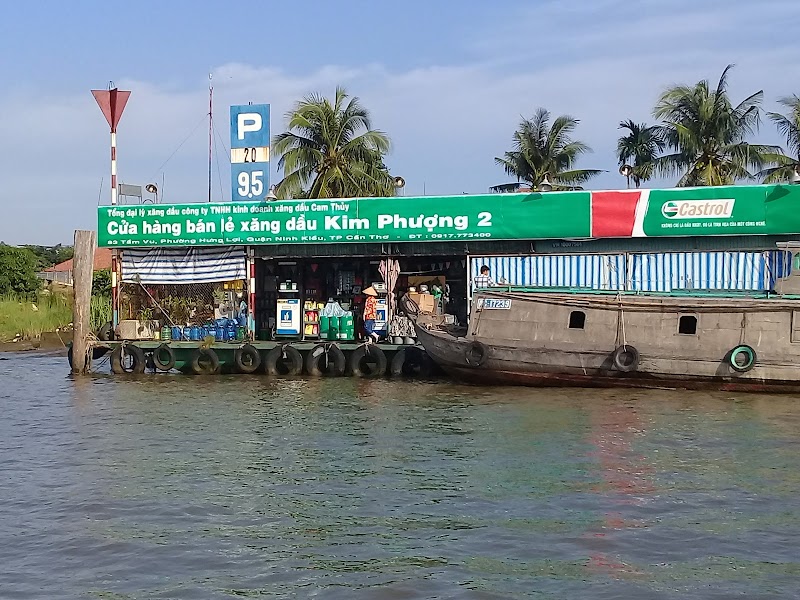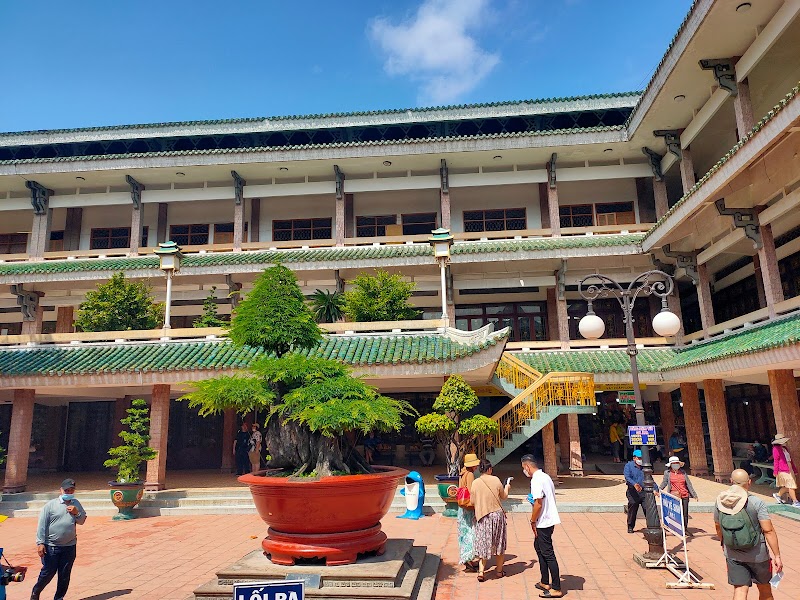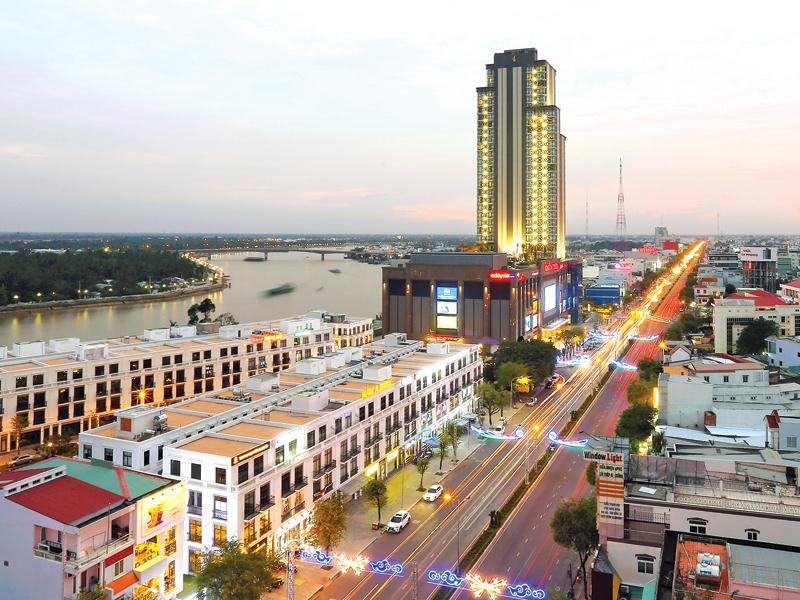Welcome to the Mekong Delta
Did you know that the Mekong Delta, also known as Vietnam's 'rice bowl', produces over half of the country's rice output? This verdant landscape, crisscrossed by countless waterways and brimming with biodiversity, is one of Vietnam's most enchanting regions. Discover an array of unique attractions, from vibrant floating markets to serene Buddhist pagodas and lush mangrove forests. The Mekong Delta beckons with an irresistible charm that captivates every traveler.
Embarking on your journey through the Mekong Delta, you'll find a tourist map to be an invaluable companion. This tool helps you navigate the Delta's intricate waterways, discover hidden gems, and plan your itinerary efficiently. With a map in hand, the Mekong Delta is your oyster, ready to reveal its many pearls.
Booking.comDiscover the Unseen Beauty of the Mekong Delta
As you wander through the idyllic landscapes of the Mekong Delta, you'll encounter a world steeped in vibrant culture and rich traditions. This is a place where life is intimately tied to the ebb and flow of the river. It's a place where each new bend in the river reveals a different facet of Vietnam's stunning beauty. But what are the unmissable sights and experiences that this riverine region has to offer? Let's dive in!
Top Attractions in Mekong Delta
- Cai Rang Floating Market
- Sam Mountain in Chau Doc
- Xeo Quyt Eco-Tourism Park
- Vinh Trang Pagoda in My Tho
- Tra Su Bird Sanctuary
- Long Xuyen Crocodile Farm
- Dong Tam Snake Farm
Navigating the Winding Waterways: Can Tho and Cai Rang Floating Market
The city of Can Tho, the beating heart of the Mekong Delta, is a bustling hub of activity. Here, the river life manifests itself in the most vivid way at the Cai Rang Floating Market. Unlike the bustling city markets you might be used to, this unique market takes place entirely on the water. Vendors sell their goods from the decks of their boats, creating a vibrant tableau of colors and smells that is a feast for the senses.
Scaling Heights: Chau Doc and Sam Mountain
From the water to the mountains, the Mekong Delta's landscapes are diverse and captivating. Chau Doc, a border town near Cambodia, offers a distinct cultural mix of Chinese, Cham and Khmer influences. A short way from the town lies Sam Mountain, an important pilgrimage site with a collection of temples and shrines. The panoramic views from its peak offer a breathtaking perspective on the patchwork of rice fields, orchards, and waterways that make up the Delta's unique terrain.
Embrace Nature: Xeo Quyt Eco-Tourism Park and Tra Su Bird Sanctuary
As you venture deeper into the Delta, you'll discover places where nature reigns supreme. Xeo Quyt Eco-Tourism Park is one such place, a green oasis that provides a glimpse into the region's past. Here, amid the mangroves and swamps, remnants of Viet Cong bunkers still stand, a stark reminder of the region's history.
Moving on to the Tra Su Bird Sanctuary, you'll enter a world of serene beauty. This wetland reserve is a haven for birdwatchers, home to over 140 species of water birds. Plan your visit around dawn or dusk to witness the mesmerizing sight of flocks of birds taking flight against the backdrop of the setting sun.
Experience Local Life: Vinh Trang Pagoda and Dong Tam Snake Farm
Immersing yourself in local life is an essential part of any trip to the Mekong Delta. A visit to the Vinh Trang Pagoda, a beautiful Buddhist temple in My Tho, offers a glimpse into the religious life of the region. The pagoda's unique architecture, which blends European and Asian styles, reflects the diverse cultural influences that have shaped the Delta.
Finally, for those looking for a thrill, the Dong Tam Snake Farm offers a unique experience. As one of the largest snake-raising centers in Vietnam, it plays a crucial role in producing antivenin for the country. Witnessing the handlers interact with these fascinating creatures is not for the faint-hearted, but it offers a unique insight into a lesser-known aspect of life in the Delta.
As you explore the Mekong Delta, let the tourist map of Vietnam guide you through this labyrinth of waterways, rice fields, and vibrant communities. With each new discovery, you'll find yourself falling in love with this unique corner of the world.

Practical Information for Mekong Delta
Transportation and Mobility
Traveling in the Mekong Delta is a unique experience, offering a variety of transportation modes. Scooters and bicycles are the primary means of transportation in the region, both available for rent in almost every city for about VND 50,000 to VND 200,000 per day.
For those who prefer not to drive, motorbike taxis (xe om) are a common sight and generally cost around VND 10,000 to VND 15,000 per kilometer. Remember to negotiate the price before your ride to avoid any misunderstanding.
Lastly, boat trips are an integral part of the Mekong Delta experience. A short ride typically costs VND 30,000 to VND 50,000, while a full-day boat tour can range from VND 200,000 to VND 500,000.
Schedules and Prices
Most attractions in the Mekong Delta, such as local markets, are open from early morning (around 5 AM) until late afternoon (around 5 PM). It is advisable to visit these places in the morning when the weather is cooler and the markets are at their busiest.
Entrance fees for most tourist sites typically range from VND 10,000 to VND 50,000. Do note that many places offer discounts for children, students, and seniors.
Safety Tips
Traveling in the Mekong Delta is generally safe, but it's always wise to take precautions. Keep an eye on your belongings in crowded places, and avoid flashing expensive items.
When renting bikes or scooters, ensure they are in good condition before use and always wear a helmet. If you plan to go on a boat trip, do not forget to wear a life jacket, and avoid leaning over the boat's edge.
Practical Recommendations
The Mekong Delta is a tropical region with a high humidity level. Lightweight, breathable clothing and comfortable walking shoes are recommended. Also, don't forget to carry a hat and sunscreen to protect yourself from the sun.
Finally, the best time to visit the Mekong Delta is during the dry season, from November to April, when the weather is less humid, and the chance of rain is low.
With these practical tips, you're now ready to explore the vibrant life and rich culture of the Mekong Delta. Enjoy your adventure!

Frequently Asked Questions about Mekong Delta, Vietnam
Q1: How can I experience the local culture in the Mekong Delta?
A visit to a local homestay is perhaps the best way to experience the authentic culture of the Mekong Delta. Many families in smaller towns and villages offer accommodations and meals, giving you a chance to immerse yourself in their daily lives. Additionally, you might also want to check out the local workshops where you can witness the production of traditional handicrafts and coconut candy.
Q2: Are there any specific culinary experiences unique to Mekong Delta?
The Mekong Delta is a culinary treasure trove, offering a variety of unique dishes. Don't miss the chance to try the region's specialty - Elephant Ear Fish (Cá Tai Tượng Chảo Hột Vịt), a delicious and visually striking dish. Sampling tropical fruits straight from the orchards is also a must-do activity.
Q3: I've heard about the "floating houses" in Mekong Delta. What are they, and can I visit them?
Yes, the "floating houses" or "houseboats" are a unique feature of the Mekong Delta. They are primarily used for aquaculture, with a cage under each house where fish are raised. Many locals offer tours to these floating houses, providing a glimpse into their aquatic way of life.
Q4: I'm interested in birdwatching. Are there any specific spots in Mekong Delta for this?
Indeed, the Mekong Delta is home to a rich variety of bird species. In addition to the Tra Su Bird Sanctuary, the U Minh Ha National Park is another great spot for birdwatching. Visiting during the early morning or late afternoon would give you the best opportunities for sighting.
Q5: I enjoy cycling. Are there any recommended bike routes in the Mekong Delta?
Cycling is a fantastic way to explore the Mekong Delta. One highly recommended route is the Ben Tre - Tra Vinh - Can Tho circuit, which offers an excellent mix of natural landscapes, local life, and historical sites. Make sure you carry plenty of water and sun protection.
Q6: What's the best time of year to visit the Mekong Delta?
The best time to visit the Mekong Delta is during the dry season, from November to April. The weather is generally sunny and pleasant during these months, making it ideal for outdoor activities and exploring the region's natural beauty.

